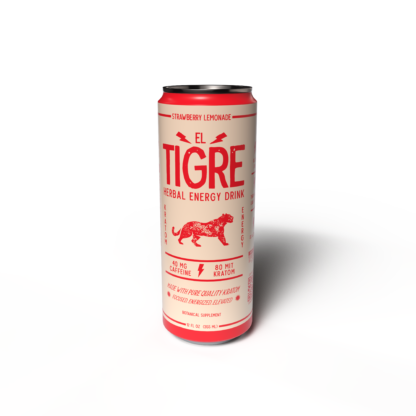Kratom’s Effects on the Brain
Kratom, a tropical tree native to Southeast Asia, has gained popularity for its purported mood-boosting and energizing effects. Derived from the leaves of the Mitragyna speciosa tree, kratom contains psychoactive compounds that interact with opioid receptors in the brain. These compounds can produce a range of effects, including euphoria, increased alertness, and pain relief.
Mechanism of Action
Kratom’s effects on the brain are primarily mediated through its interaction with opioid receptors. The leaves of the Mitragyna speciosa tree contain alkaloids, such as mitragynine and 7-hydroxymitragynine, which bind to mu, delta, and kappa opioid receptors.
Activation of these receptors can lead to a variety of effects, including:
- Pain relief
- Euphoria
- Increased energy levels
- Analgesia
- Sedation (at higher doses)
Potential Mood-Boosting Effects
Kratom’s potential mood-boosting effects are believed to be linked to its interaction with opioid receptors in the brain. While it shares some similarities with opioids like morphine, kratom produces a less intense and shorter-lasting high. The alkaloids in kratom stimulate dopamine release, which is associated with feelings of pleasure and well-being.
It’s important to note that research on kratom’s effects on mood disorders is limited and more studies are needed to fully understand its potential benefits and risks.
Scientific Evidence and Research
Scientific evidence plays a crucial role in understanding the potential benefits and risks of substances like kratom. Research involving controlled studies, clinical trials, and data analysis allows scientists to gather objective information about how a substance affects the body and brain.
Existing Studies on Kratom and Depression
While some anecdotal reports suggest that kratom may help manage symptoms of depression, scientific evidence supporting this claim is limited. Existing research on kratom and depression primarily focuses on its potential risks and side effects rather than therapeutic benefits.
Most studies investigating kratom’s effects on mood disorders have been observational or small-scale, making it difficult to establish a clear causal relationship. Additionally, the variability in kratom preparations (different strains, dosages, and methods of consumption) makes it challenging to draw definitive conclusions about its impact on depression.
Rigorous, controlled clinical trials with larger participant groups are needed to determine the efficacy and safety of kratom for treating depression. Such studies should also investigate potential interactions with other medications and assess long-term effects.
Limitations of Current Research
Scientific evidence is essential for understanding the potential benefits and risks of substances like kratom. However, current research on kratom’s effects on depression is limited.
Much of the existing research has been observational or small-scale, making it difficult to establish a clear cause-and-effect relationship between kratom use and changes in mood.
The variability in kratom preparations, including different strains, dosages, and methods of consumption, further complicates the interpretation of research findings.
To gain a better understanding of kratom’s potential role in managing depression, larger, controlled clinical trials are necessary. These studies should investigate various factors such as dosage, duration of use, and potential interactions with other medications.
Future Research Directions
Scientific evidence is crucial for understanding the potential benefits and risks of substances like kratom. Research involving controlled studies, clinical trials, and data analysis allows scientists to gather objective information about how a substance affects the body and brain.
While some anecdotal reports suggest that kratom may help manage symptoms of depression, scientific evidence supporting this claim is limited.
- Existing research on kratom and depression primarily focuses on its potential risks and side effects rather than therapeutic benefits.
- Most studies investigating kratom’s effects on mood disorders have been observational or small-scale, making it difficult to establish a clear causal relationship.
- The variability in kratom preparations (different strains, dosages, and methods of consumption) makes it challenging to draw definitive conclusions about its impact on depression.
Rigorous, controlled clinical trials with larger participant groups are needed to determine the efficacy and safety of kratom for treating depression. Such studies should also investigate potential interactions with other medications and assess long-term effects.
Safety and Potential Risks
While kratom shows promise as a potential mood enhancer, it’s crucial to understand the potential risks associated with its use. Kratom’s effects on the brain are mediated through opioid receptors, which can lead to both positive and negative consequences.
Side Effects and Interactions
Kratom can produce a range of side effects, some of which can be serious. These can include nausea, vomiting, constipation, dizziness, anxiety, insomnia, and seizures. Long-term use of kratom has been linked to liver damage, respiratory problems, and addiction.
Kratom can interact with a number of medications, including antidepressants, opioids, and benzodiazepines. These interactions can be dangerous and may lead to serious health problems. It is important to talk to your doctor before using kratom, especially if you are taking any other medications.
Due to the limited research on kratom’s effects and potential risks, it is crucial to exercise caution when considering its use, especially for managing depression.
Regulation and Legal Status
Kratom energy drinks have emerged as a novel product, capitalizing on the purported mood-boosting and energizing properties of kratom. However, the safety and legality of these drinks raise significant concerns.
The potential risks associated with kratom energy drinks are multifaceted and require careful consideration.
- Potential for Addiction: Kratom’s interaction with opioid receptors can lead to dependence and addiction, particularly with prolonged use.
- Health Risks: Long-term kratom consumption has been linked to liver damage, respiratory problems, and cardiovascular issues.
- Drug Interactions: Kratom can interact dangerously with various medications, including antidepressants, opioids, and benzodiazepines.
- Unregulated Production: The lack of standardized manufacturing processes and quality control for kratom energy drinks raises concerns about the purity and safety of these products.
The legal status of kratom varies widely across jurisdictions.

- United States: Kratom is legal in many states, but its sale and possession are restricted or banned in others. The DEA has attempted to classify kratom as a Schedule I drug, but this effort has faced opposition.
- Other Countries: Many countries have implemented bans or restrictions on kratom due to concerns about its potential for abuse and health risks.
The evolving regulatory landscape surrounding kratom energy drinks underscores the need for continued research, transparent labeling, and responsible consumption practices.
Kratom Energy Drinks: Formulation and Consumption
Kratom energy drinks have emerged as a novel product, capitalizing on the purported mood-boosting and energizing properties of kratom. However, the safety and legality of these drinks raise significant concerns.
Ingredients and Concentration
Kratom energy drinks combine the stimulant effects of traditional energy drinks with the psychoactive compounds found in kratom leaves. These drinks often include caffeine and other ingredients commonly found in energy beverages, along with varying concentrations of kratom extract.
The concentration of kratom alkaloids in these drinks can vary widely depending on the brand and specific product. This inconsistency makes it difficult to determine the exact dosage consumed and poses a challenge for assessing potential risks.
While some manufacturers may provide information about the kratom content, there is often a lack of transparency regarding sourcing, extraction methods, and standardization.
The potential risks associated with kratom energy drinks are multifaceted and require careful consideration.
- Potential for Addiction: Kratom’s interaction with opioid receptors can lead to dependence and addiction, particularly with prolonged use. Energy drink format could increase accessibility and consumption.
- Health Risks: Long-term kratom consumption has been linked to liver damage, respiratory problems, and cardiovascular issues. The added stimulants in energy drinks may exacerbate these risks.
- Drug Interactions: Kratom can interact dangerously with various medications, including antidepressants, opioids, and benzodiazepines.
- Unregulated Production: The lack of standardized manufacturing processes and quality control for kratom energy drinks raises concerns about the purity and safety of these products.
The legal status of kratom varies widely across jurisdictions, and regulations surrounding kratom energy drinks are often lacking or evolving. This ambiguity contributes to the potential dangers associated with these products.
Methods of Consumption
Kratom energy drinks combine the stimulating effects of traditional energy drinks with the psychoactive compounds found in kratom leaves. These drinks often include caffeine and other ingredients commonly found in energy beverages, along with varying concentrations of kratom extract.
Methods of consumption for kratom energy drinks are similar to those of conventional energy drinks. They are typically consumed by drinking the beverage directly.

However, due to variations in potency and ingredient combinations, the effects of kratom energy drinks can vary significantly from person to person. It is crucial to be aware of the potential risks associated with these products before consumption.
The lack of standardized manufacturing processes and quality control for kratom energy drinks raises concerns about the purity and safety of these products.
Considerations for Individuals with Depression
Individuals experiencing depression should approach the use of kratom-based products with extreme caution. While some anecdotal reports suggest potential mood-boosting effects, scientific evidence supporting kratom as a treatment for depression is limited and often inconclusive. The complexities of depression require comprehensive evaluation and management by qualified healthcare professionals.
Potential Benefits and Drawbacks
Individuals considering using kratom, particularly in the context of managing depression, should carefully weigh the potential benefits against the known risks.
While some anecdotal reports suggest kratom may have mood-boosting effects, scientific evidence supporting this claim is limited and inconclusive.
Research on kratom’s impact on depression is still in its early stages, and more rigorous studies are needed to determine its efficacy and safety.
It’s important to note that kratom can have a range of side effects, some of which can be serious. These include nausea, vomiting, constipation, dizziness, anxiety, insomnia, and seizures.
Long-term use has been linked to liver damage, respiratory problems, and addiction.
Kratom can also interact dangerously with other medications, including antidepressants, opioids, and benzodiazepines.
Given these potential risks, it is crucial for individuals struggling with depression to consult a healthcare professional.
A doctor can help assess individual circumstances, explore alternative treatment options, and provide guidance on managing symptoms safely and effectively.
Self-medicating with kratom can be dangerous and may worsen existing health conditions or lead to new complications.
Seeking Professional Guidance
Individuals experiencing depression should prioritize their well-being and seek professional guidance from qualified healthcare providers. While kratom has gained popularity for purported mood-boosting effects, scientific evidence supporting its use in treating depression is limited and inconclusive.
It’s crucial to recognize that depression is a complex condition that requires comprehensive evaluation and management by experienced professionals. Healthcare providers can assess individual needs, explore various treatment options, including therapy, medication, or lifestyle modifications, and provide personalized guidance tailored to specific circumstances. Self-treating depression with substances like kratom can be risky and potentially harmful.
Just Kratom fuels your hustle
Azmia Magane
Brainstorm the Book
- Xela Rederm Skin Booster Treatments Near Pirbright, Surrey - January 13, 2026
- Xela Rederm Skin Booster Treatments Near Chessington, Surrey - January 10, 2026
- Why The Vista Edge Vape Is A Game-Changer For CBD & THC Vaping - January 7, 2026
